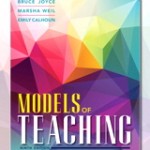On Grace and Gratitude
 This blog is a letter to my colleagues at West Wind Education Policy, written as I end my tenure at West Wind and as I phase into retirement from the education profession.
This blog is a letter to my colleagues at West Wind Education Policy, written as I end my tenure at West Wind and as I phase into retirement from the education profession.
Dear West Wind Friends and Colleagues,
This month marks both the anniversary of four years of employment at West Wind and my retirement. These years of service with each of you has been a wonderful capstone to my life’s work as a teacher and in support of teachers. I hope that in my time at West Wind, I have cultivated relationships and a way of working together that brought dignity and grace to our shared workplace. I have been thinking a lot about grace. The word “grace” comes from the Latin root word “grat” which has many meanings — pleasing, agreeable; giving something not asked for, out of kindness; and to be thankful, appreciative.[1] It is my ongoing aspiration to give something not asked for, to demonstrate kindness, to act with grace – not just at work, but all the time. Of course, this goal demands constant reflection, self-discipline, and relentless effort. Colleagues, I ask you to forgive those occasions when I didn’t quite meet this challenge and accept my thanks for the countless times your grace-filled actions and gestures contributed to our collective work, cemented friendships, and made working at West Wind such a pleasure. Continue reading “On Grace and Gratitude”









 I just read a recent
I just read a recent 